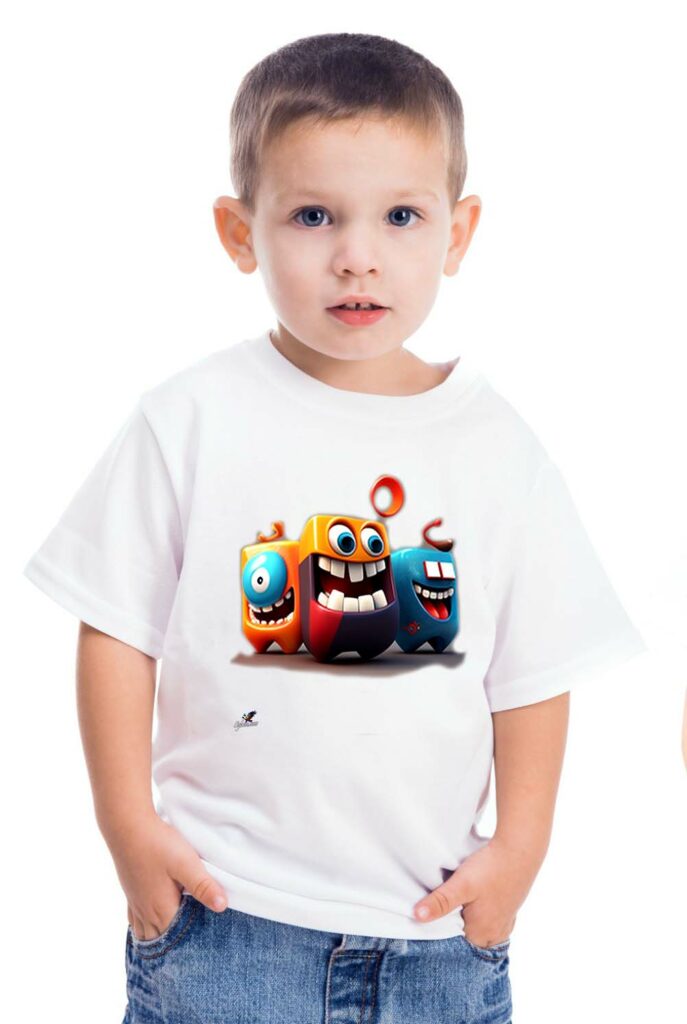





























Sustainability and environmental consciousness have become significant factors in the fashion industry. Consumers are increasingly concerned about the impact of their clothing choices on the planet, leading to a rise in demand for eco-friendly and sustainable fashion options. One area where sustainability and fashion intersect is in AI-designed t-shirts. These t-shirts are created using artificial intelligence technology, which allows for more efficient and environmentally-friendly production processes. In this article, we will explore the concept of sustainability in AI-designed t-shirts and how this innovative approach to fashion can contribute to a more eco-conscious industry.
The Role of Artificial Intelligence in Fashion
Artificial intelligence (AI) has revolutionized various industries, and fashion is no exception. In the context of t-shirt design, AI algorithms can generate unique and creative patterns, graphics, and prints. This technology eliminates the need for manual design processes, reducing waste and improving efficiency in the production cycle. AI can analyze vast amounts of data, including customer preferences and market trends, to create designs that resonate with consumers. By leveraging AI in t-shirt design, brands can produce garments that are not only visually appealing but also sustainable.
Sustainable Materials in AI-Designed T-Shirts
One of the critical aspects of sustainability in AI-designed t-shirts is the choice of materials. Traditional t-shirt production often relies on conventional cotton, which has significant environmental impacts due to water consumption, pesticide use, and soil degradation. However, eco-conscious brands now opt for alternative materials with a lower ecological footprint. These materials include organic cotton, recycled polyester, and innovative fabrics derived from sustainable sources like bamboo or hemp. By using these sustainable materials, AI-designed t-shirts contribute to reducing the fashion industry’s overall carbon footprint.
Reduced Waste in Production
Another significant benefit of AI-designed t-shirts is the reduced waste in the production process. Traditional fashion production often leads to the generation of excess fabric waste during cutting and sewing. However, AI algorithms can optimize pattern layouts to minimize fabric waste, ensuring that each piece of fabric is utilized efficiently. This not only reduces material waste but also saves on production costs. Additionally, AI can help brands predict demand more accurately, preventing overproduction and minimizing the amount of unsold inventory that ends up in landfills.
Energy Efficiency and Carbon Footprint Reduction
AI-designed t-shirt production also offers energy efficiency benefits, leading to a reduced carbon footprint. AI algorithms can optimize manufacturing processes, such as dyeing and printing, by minimizing energy consumption and water usage. Furthermore, AI can assist in streamlining supply chains, reducing transportation-related emissions. By leveraging AI technology, brands can implement more sustainable practices throughout the entire production cycle, contributing to a greener and more environmentally-conscious fashion industry.
Transparency and Ethical Sourcing
Transparency and ethical sourcing are crucial aspects of sustainability in the fashion industry. AI-designed t-shirts can help brands ensure transparency by providing traceability of materials and production processes. By using AI algorithms to track and verify the origin of materials, brands can guarantee that their t-shirts are sourced ethically and produced under fair working conditions. This transparency allows consumers to make informed choices and support brands that prioritize social and environmental responsibility.
Social Impact and Fair Trade
Sustainability in AI-designed t-shirts extends beyond environmental considerations. Fairtrade practices and social impact are essential aspects of creating a more sustainable fashion industry. AI algorithms can help brands identify and partner with fair trade suppliers and manufacturers, ensuring that workers are paid fair wages and provided with safe working conditions. AI-designed t-shirts create a more equitable and socially responsible fashion ecosystem by prioritizing reasonable trade practices.
Consumer Awareness and Education
Creating a more sustainable fashion industry requires not only the efforts of brands but also the support and awareness of consumers. AI-designed t-shirts can play a role in raising consumer awareness about sustainability by showcasing the environmental and social benefits of these innovative products. Brands can educate consumers about the use of sustainable materials, reduced waste, and ethical production practices through marketing campaigns and product labeling. By empowering consumers with knowledge, AI-designed t-shirts can inspire more conscious purchasing decisions and encourage the adoption of sustainable fashion practices.
Conclusion
Sustainability in AI-designed t-shirts represents a promising avenue for the fashion industry to embrace more environmentally-conscious practices. The use of artificial intelligence technology allows for more efficient production processes, reducing waste and the adoption of sustainable materials. AI-designed t-shirts contribute to energy efficiency, carbon footprint reduction, and ethical sourcing. By prioritizing sustainability, transparency, and social impact, brands can create a more sustainable fashion industry that aligns with consumer demands for eco-friendly and socially responsible products. As consumers become more aware of the environmental impact of their clothing choices, AI-designed t-shirts offer a viable solution for those seeking fashionable, innovative, and sustainable clothing options.
Sustainability in AI-Designed T-Shirts: Environmentally Conscious Fashion – Table
| Section | Subsections |
| 1. Introduction | – The Rise of Sustainability in Fashion – AI in T-Shirt Design |
| 2. The Role of Artificial Intelligence | – AI Algorithms in T-Shirt Design – Data Analysis and Trend Forecasting |
| 3. Sustainable Materials | – Organic Cotton – Recycled Polyester – Innovative Fabrics |
| 4. Reduced Waste in Production | – Optimized Pattern Layouts – Demand Prediction |
| 5. Energy Efficiency and Carbon Footprint Reduction | – Optimizing Manufacturing Processes – Streamlining Supply Chains |
| 6. Transparency and Ethical Sourcing | – Traceability of Materials – Fair Working Conditions |
| 7. Social Impact and Fair Trade | – Fair Trade Practices – Social Responsibility |
| 8. Consumer Awareness and Education | – Marketing Campaigns – Product Labeling |
| 9. Conclusion | – The Promise of Sustainability in AI-Designed T-Shirts |
F.A.Q – Sustainability in AI-Designed T-Shirts
Q1: How are AI-designed t-shirts more sustainable than traditional t-shirts? AI-designed t-shirts are more sustainable than conventional t-shirts due to several factors. Firstly, AI algorithms optimize pattern layouts, reducing fabric waste during production. Secondly, AI helps in predicting demand accurately, eliminating overproduction, and minimizing unsold inventory. Additionally, AI enables the use of sustainable materials like organic cotton and recycled polyester, reducing the environmental impact of t-shirt production.
Q2: Are AI-designed t-shirts more expensive than traditional t-shirts? The cost of AI-designed t-shirts can vary depending on various factors, such as the brand, materials used, and manufacturing processes. While some AI-designed t-shirts may have a higher price point due to sustainable textiles and ethical production, affordable options are also available. Considering the long-term value and environmental benefits when evaluating the cost of AI-designed t-shirts is essential.
Q3: How can consumers support sustainability in AI-designed t-shirts? Consumers can support sustainability in AI-designed t-shirts by choosing brands that prioritize eco-friendly materials, ethical sourcing, and transparency. Additionally, spreading awareness about sustainable fashion practices and making conscious purchasing decisions can encourage more brands to embrace sustainability. By supporting brands that offer AI-designed t-shirts, consumers can contribute to a more environmentally-conscious fashion industry.
Q4: Can AI-designed t-shirts be recycled or upcycled? Yes, AI-designed t-shirts can be recycled or upcycled, depending on the materials used. For example, t-shirts made from recycled polyester can be recycled again at the end of their lifecycle. Similarly, t-shirts made from organic cotton can be composted or repurposed. Brands and consumers should prioritize proper disposal or recycling methods to ensure the sustainability of AI-designed t-shirts.
Q5: Are AI-designed t-shirts only available in limited designs or styles? No, AI-designed t-shirts offer a wide range of designs and styles. AI algorithms can generate unique and creative patterns, graphics, and prints, catering to various consumer preferences. Whether it’s classic, modern, bold, or subtle designs, AI can create t-shirts that suit different individual styles and fashion tastes.
Testimonials